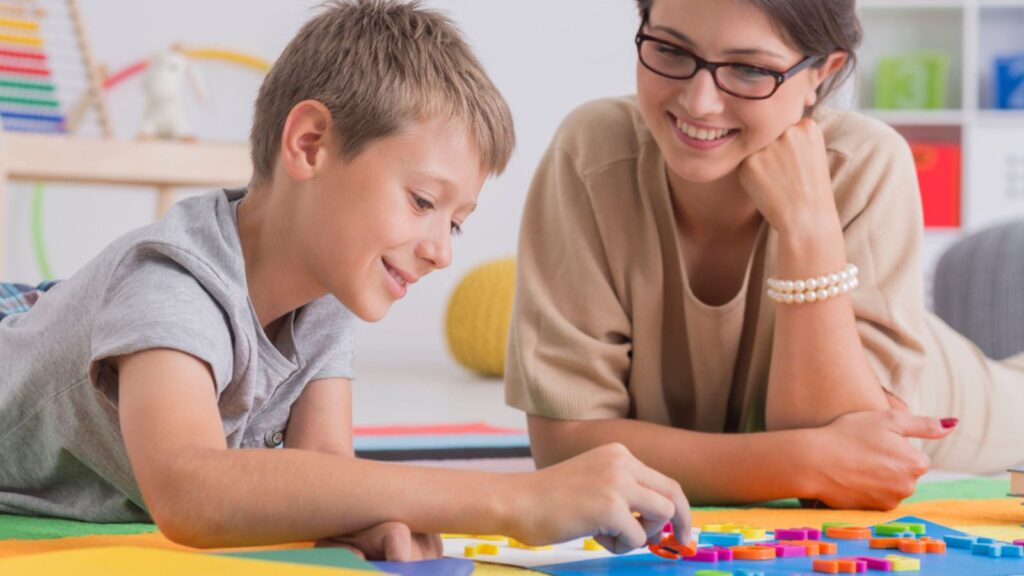15 Cool Benefits of Homeschooling That Show Why It’s on the Rise
This post may contain affiliate links. As an Amazon Associate, I earn from qualifying purchases.
Are you toying with the idea of homeschooling your children? You will be in very good company, seeing that homeschooling has significantly increased in popularity among families in the USA. Education research reveals that 1 in every 12 students is homeschooled.
This alternative education path offers numerous benefits that traditional schooling might not provide. The lockdown during the COVID pandemic contributed to the upsurge in homeschooling, but it’s not the only reason. Other parents are resorting to homeschooling to keep their children safe.
Are you still unsure if homeschooling is for you? Whatever you decide, choosing what works for you and your little scholars is the most important thing. Here are some cool benefits of homeschooling that may help you decide.
1. Customized Learning Experience

Every child learns differently, and homeschooling allows a learning experience tailored to each child’s unique strengths, weaknesses, interests, and learning pace. This approach can lead to a deeper understanding of the material, foster a love for learning, and encourage self-motivated study habits.
This is unlike traditional schools where one-size-fits-all education is the norm. Homeschooling ensures your child fully comprehends the material and keeps them engaged and interested in learning. It can be very helpful if your child needs special attention in one area or another.
2. Stronger Family Bonds

It’s not uncommon for parents and kids not to see each other in today’s world when each one wakes up and leaves, beats traffic, and then gets back home exhausted. Homeschooling provides an excellent opportunity for families to spend more time together and strengthen their relationships.
With traditional schooling, parents may only get a few hours with their children in the evenings. Homeschooling allows for quality time throughout the day, creating bonds that can last a lifetime.
3. Flexibility and Freedom

With homeschooling, you are not bound to traditional schools’ strict schedules and routines. You can choose when your child learns and for how long. This means you can take breaks as needed, plan family vacations during off-peak seasons, and adjust the curriculum to fit your child’s interests or needs.
This flexibility also extends to where you can teach. You can have lessons at home, in a park, at a museum, or any other location that provides opportunities for learning and exploration. The kids will surely enjoy a break from the four classroom walls and bells.
4. Eliminating Unnecessary Competition

In a homeschooling environment, the unnecessary competition that often exists in traditional schools is removed. Instead of comparing themselves to others, students can focus on their personal growth and achievements. This can lead to increased self-esteem and a more positive attitude toward learning.
While competition to be top-of-the-class isn’t all bad, it can sometimes be detrimental to a child’s self-esteem and motivation. Homeschooling allows children to learn at their own pace without the pressure of constantly competing with their classmates.
5. A Safer Learning Environment

Do you know who your kid is friends with in school and how they influence them? With homeschooling, you have full control over who your child interacts with and what kind of environment they are learning in. This can provide peace of mind for parents concerned about their child’s safety and well-being in traditional school settings.
Homeschooling eliminates some of the risks of peer pressure and exposure to negative influences that can be present in some schools. Children can learn in a safe and comfortable environment where they can fully focus on their education without distractions or worries.
6. Less Pressure on Parents

Many parents feel pressured to conform to the schedules and demands of traditional schooling. Homeschooling eliminates the stress of strict deadlines, early morning starts, and the constant back-and-forth between extracurricular activities. Parents have more control over their schedules and can create a more relaxed, stress-free educational environment.
There’s also the not-so-small matter of expensive school trips, uniforms, supplies, and more that can add up significantly over a school year. Homeschooling can be a more cost-effective option for families on a budget.
7. Opportunity for Real-World Experiences

Most formal education in traditional schools today is tailored to passing exams. Little is taught about real life. Homeschooling allows children to learn outside of textbooks and traditional classroom settings. Parents can incorporate real-world experiences into their curriculum.
Left with the option to decide how the kids learn, parents can add life lessons such as household tasks, volunteer work, and entrepreneurial projects. These activities can provide valuable skills and knowledge that traditional schooling may not cover.
8. Greater Focus on Morals and Values

Every home knows the values they want their children to have. Some schools, however, also have an agenda for your children, and they will allow certain values that you may not agree with as a parent. Homeschooling opens up opportunities for parents to incorporate their morals and values into the curriculum.
Parents have more control over what their children are exposed to and can ensure they learn in an environment that aligns with their beliefs and values. This ensures you’re in control of what your children are exposed to.
9. Building Talents

With the flexibility homeschooling offers, students can spend more time developing their talents and exploring their interests. Whether it’s art, music, sports, or any other field, homeschooling can provide the time and resources needed for students to pursue their passions deeply.
You know your child best, and homeschooling allows you to tailor their education to include activities that will help them grow and excel in their talents. This can lead to a well-rounded individual equipped with academic knowledge and practical skills.
10. No Bullying

Bullying is a significant concern in many schools. Homeschooling provides a safe learning environment where children can grow and learn without the fear of being bullied. This secure environment can lead to better educational outcomes and overall mental health.
While it will shield the children from the unpleasant experience of being bullied, it should not entirely shield them from the reality that it’s a real problem. Homeschooling can be a good opportunity to teach them resilience. Remind them that they will probably meet people in their lives who will be mean and how to deal with that.
11. Exposure to Diverse Curriculum Options

Normal schools usually adhere to the national curriculum. However, homeschooling provides the flexibility to explore a wide range of curriculum options. These options may not be available in traditional educational settings.
This flexibility allows for the inclusion of educational philosophies and subjects that match the family’s values and the student’s interests. It also provides a more rounded and diverse education.
12. Enhanced Critical Thinking Skills

Without the constraints of a standard classroom approach, homeschooling encourages students to develop their critical thinking and problem-solving skills. Learning becomes more than just memorizing facts; it’s about understanding concepts, applying them in real-world scenarios, and thinking independently.
Critical thinking is a forgotten skill in today’s education system, but it is essential for success in the modern world. Homeschooling can help nurture this skill and prepare students for future challenges.
13. Improved Socialization Skills

Contrary to common myths, homeschooled children often have better-developed socialization skills. They interact with a broader range of people and in more varied contexts than their counterparts, from community activities to mixed-age group interactions, fostering more mature social abilities.
Traditionally schooled children mostly interact with their peers only, limiting their exposure to diverse age groups and social situations. Homeschooling can provide a more diverse social environment for children to develop strong communication and adaptability skills.
14. Better Health and Nutrition

Homeschooling allows for better control over a child’s diet and schedule, potentially leading to healthier eating habits and adequate physical activity. Parents can ensure that meals are nutritious and that children have ample time for exercise and rest.
There’s no chance for the child to have a sandwich or candy bar daily at lunch hour from a vending machine because they did not like what was in the school cafeteria. Homeschooling can provide healthier options and promote overall well-being.
15. Cultivation of Independent Thinking

With no bells and class teachers breathing down their necks, homeschooled students are typically encouraged to take charge of their learning at an early age. This leads to the cultivation of independence and self-motivation. These traits are invaluable in higher education and beyond, as they foster lifelong learners who are unafraid to pursue their goals.
While school schedules are great, not many kids follow them willingly. However, if they know what’s expected of them, they are ready to create their own schedules. Homeschooling can allow children to develop time management and self-discipline skills.
20 Strong Words Parents Should Never Say to Their Kids

Countless adults sitting in a therapist’s office today are grappling with the lasting impact of words spoken by their parents during childhood. Regardless of how you perceive yourself, in your child’s eyes, you are nothing short of the most remarkable thing to happen to them since “skip intro.” This underscores the critical importance of being mindful of what you say to your children, as your words become the small but influential voice in their developing minds.
20 Strong Words Parents Should Never Say to Their Kids
16 Common Phrases Grandparents Should Stop Saying to Their Grandkids

Do you still remember something your grandparents said that made you uncomfortable? As much as we adore our grandparents, their words (even with good intentions) can sometimes hurt our feelings or are plain embarrassing.
If you are a grandparent, using your words mindfully around your grandkids is as crucial as any other relationship. Words hold immense power and shape our kids’ behaviors and perceptions.
16 Common Phrases Grandparents Should Stop Saying to Their Grandkids







